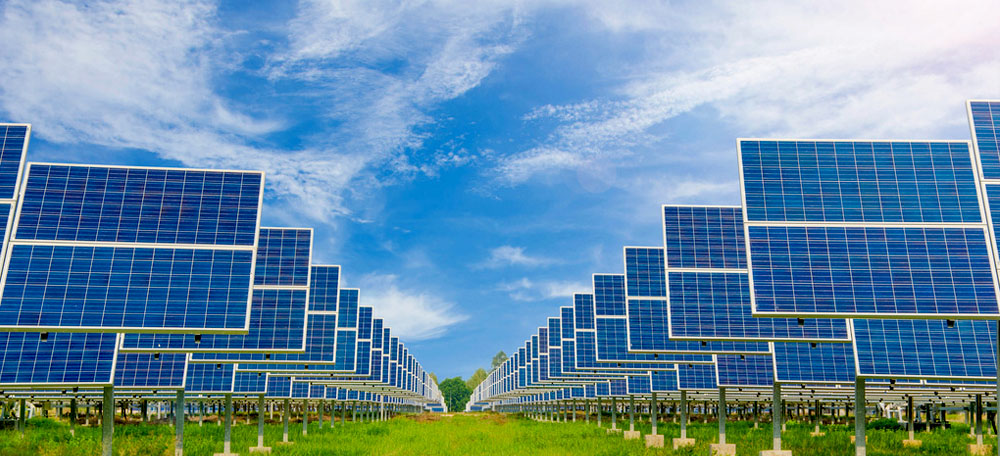Chinese PV company Risen announced on Monday plans to invest RMB44.65 billion (US$7 billion) in a capacity expansion of its entire supply chain from polysilicon to the execution of renewable energy power plants. The PV company signed an investment framework with the local government of Baotou City, Inner Mongolia to execute its plans. In terms of manufacturing, the goal is to invest RMB2.35 billion in four production projects, which would see with an annual capacity of 200,000 metric tons of silicon metal; RMB13.5 billion for an annual capacity of 150,000 metric tons of solar-grade polysilicon; a new N-type mono-crystalline ingot factory with an annual capacity of 10GW for an investment of RMB3 billion; and a PV module factory with a capacity of 3GW, for an investment of RMB600 million. Regarding its renewable energy plant plans, Risen has said it will invest RMB14 billion to install 3.5GW of solar PV farms and 1.6GW of wind power farms. Accompanying power storage plants will also be built alongside them. The company added that the investments in its manufacturing will be completed within four years, while investment in its power plants will depend on the market situation.
Replying to questions from investors on Tuesday, polysilicon supplier and solar cell maker Tongwei said that the ongoing project it has jointly developed with Trina Solar for 15GW of ingot manufacturing and 15GW of wafer cutting projects is on schedule and that all work will be finished and put into production in H1 2022. Specifically, there will be 2GW of ingot capacity which will go into production by the end of 2021, while the remaining 13GW is expected to be realized by the end of June 2022. For the wafer cutting project, 7.5GW has already been completed this year, and the remaining 7.5GW will go into production also by the end of next June. This jointly developed capacity expansion was announced in November 2020. Tongwei and Trina Solar invested RMB15 billion for 40,000 metric tons of polysilicon capacity, and 15GW of ingot, 15GW of wafer, and 15GW of solar cell capacity.
Taiwan-based solar PV research institute EnergyTrend has released its latest price quotes for solar PV products. Overall, all prices continue to decline, with PV modules appearing to have seen the biggest decrease. Looking to polysilicon, prices in China dropped from RMB253/kg last week to RMB235/kg this week. Outside of the country, prices were US$33.33/kg compared to US$35.82/kg last week. PV wafer prices also fell, with multi-crystalline wafers (157mm) quoted at RMB1.94 pcs – a decline of 5.37% from last week’s price of RMB2.05 pcs. G1 size mono-crystalline wafers, meanwhile, were quoted at RMB4.83 pcs, 5.11% lower than last week. Other prices include RMB4.9 pcs for M6 wafers, RMB5.7 pcs for M10 wafers, and RMB8 pcs for G12 wafers. Solar cell prices are now quoted at RMB1.08/W for mono PERC G1 sizes, RMB1.02/W for mono PERC M6 sizes, and for larger M10 and G12 sizes, RMB1.08 and RMB1.05 per watt, respectively. The price of multi-crystalline cells dropped the most – 4% from RMB0.75 per watt to RMB0.72/W this week. However, it was PV modules that saw the biggest price drops, with 275-280/330-335W multi-panels quoted at RMB1.68/W, 355-365/430-440W mono panels quoted at RMB1.85/W, and quotes for 182mm PERC panels and G12 based panels at RMB1.9/W and RMB1.87/W, respectively.
China Shenzhen listed company Luxiao Tech said last weekend that one of its solar PV farms in Tongliao City, Inner Mongolia, was seriously damaged by a blizzard. Though exact details of the losses are still under evaluation, Luxiao said the damage – up to 60MW worth of PV panels and related electrical applications – will be fully covered by insurance and the company will soon start reconstruction and repair to restore normal operation of the plant. According to a statement, the company will see a loss in its electricity sales for several months; however, since the damaged panels will be replaced by state-of-the-art models which provide higher efficiency, it estimates positive effects for the operating income of the plant in the future.
This content is protected by copyright and may not be reused. If you want to cooperate with us and would like to reuse some of our content, please contact: editors@pv-magazine.com.



1 comment
By submitting this form you agree to pv magazine using your data for the purposes of publishing your comment.
Your personal data will only be disclosed or otherwise transmitted to third parties for the purposes of spam filtering or if this is necessary for technical maintenance of the website. Any other transfer to third parties will not take place unless this is justified on the basis of applicable data protection regulations or if pv magazine is legally obliged to do so.
You may revoke this consent at any time with effect for the future, in which case your personal data will be deleted immediately. Otherwise, your data will be deleted if pv magazine has processed your request or the purpose of data storage is fulfilled.
Further information on data privacy can be found in our Data Protection Policy.